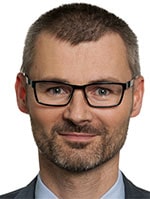Rating: Especially worth reading!
Table of Contents
Truth as in invention
Anyone can conduct job interviews!
Employee appraisals and the management of instability
Innovative personnel work
An unvarnished reflection
Object-oriented analysis – backt to the root
Communication psychology for managers
Effectuation
What do you find especially worth reading?
“Those who can read have a clear advantage” – says a humorous folk wisdom.
“The number of books read is the most accepted feel-good metric among adults that says nothing” argued Austrian sales and marketing expert and book author Alex Rammlmair recently. Unfortunately, the number of unread books says nothing either.
And already the question arises, what book should you read next? What is especially worth reading? Below you will find book recommendations by Stephanie Borgert, Katharina Nolden, Sascha Ruelicke, Britta Redmann, Stephanie Huber, Dr Annegret Junker, Anne Lamberts and Dr Eric Heinen-Konschak.
Truth as an invention
Stephanie Borgert, best-selling business author, columnist for the Frankfurter Rundschau and complexity researcher
In “Die Wahrheit ist die Erfindung eines Luegners: Gespraeche fuer Skeptiker” (Truth is the Invention of a Liar: Conversations for Sceptics), journalist Poerksen conducts a conversation with Heinz von Foerster. The physicist and philosopher von Foerster reveals a lot about his life and talks wittily. The most urgent reading recommendation for all people who want to interact well and successfully with each other is the discussion of constructivism. The conversations are about “how we construct reality”. No one has reality as their own and knows THE truth, because we all generate our own image of reality – at any given moment. Objectivity is therefore a fallacy. What may sound like an easy-to-digest insight is significant if we think it through intensively and then compare it with the way we communicate with each other in our everyday work.
My wish: This book is compulsory reading in every company and gets people to be aware of their constructs. From “this is how it is” to “this is how I see it”.
Anyone can conduct job interviews!
Katharina Nolden, expert for modern forms of work, recruiting and personnel marketing
Exactly, if he or she is familiar with the methodology and applies it skilfully, anyone can indeed conduct job interviews. My favourite book for anyone who wants to get to grips with this topic is “Effiziente Personalauswahl” (Efficient personnel selection) by Wolfgang Jetter. It is wonderfully practical and at the same time provides the theoretical background. It covers the entire process from preparatory tasks such as creating a job profile, to conducting structured recruitment interviews, to the subsequent evaluation and decision-making.
I particularly appreciate the appendix, because there are examples of possible question formulations and also of possible behavioural anchors. Behavioural anchors are the formulation of the behaviour we want from our new colleague and which we specifically ask for in the interview. These anchors make the step from learning theory to applying it in practice much easier. Sure, we can only ever look people in the face. However, to even have an idea of who we want to hire, this method is best suited for that. The forecasts are much better than any gut feeling. Speaking of gut feeling. It helps us to decide quickly and intuitively, but it is not the best advisor in personnel selection, because after all, we don’t always want to hire the same kind of employee, but rather put together a diverse team.
Employee appraisals and the management of instability
Sascha Rülicke, Managing Director and expert in organisational development for small and medium-sized enterprises
I would like to recommend two books that are especially worth reading:
The book “Mitarbeitergespraeche: Motivierend, wirksam, nachhaltig” (Employee appraisals: Motivating, effective, sustainable) by Rüdiger Hossiep, Jennifer Zens and Wolfram Berndt actually surprised me in 2021. Rüdiger Hossiep, as head of the Test Development Team at the Ruhr University Bochum, is recognised as a diagnostician (e.g. BIP and BIP-6F). Obviously, however, he can also make a weighty contribution to the topic of employee appraisals. But let’s start at the beginning.
What size does a very good book have to be – you will find an impressive example in this book. There are purely scientific books on the subject, there are quite a few books that are purely application-oriented. However, in many of these application guides, manuals and “cookbooks”, the scientific foundation is often completely missing.It is impressive how the three authors around Rüdiger Hossiep manage to successfully combine both worlds on only 170 pages (plus the practical cards).
What did I particularly like about this combination of theory and practice?
- The basic models – after the introduction to the topic – are, apart from Neuberger’s TALK model, mainly practical basics such as good listening or feedback. This shows an often forgotten aspect of appraisal interviews – from the manager’s point of view, it is not about “sending” or “presenting oneself”, but often more about listening.
- This is expanded in chapter 3 with the appropriate attitude (here: philosophy of dealing with each other) and in chapter 4 with the practical problems. Starting with the important and sufficient preparation up to the final evaluation(!).
- For whom this is not enough to transfer this knowledge into better conversations, there is also a large block of case studies as well as helpful literature recommendations.
- This is still not the end of the book. The successful transfer is rounded off with numerous checklists and practical, stable cards for “live” use in conversations.
The second book well worth reading is “next practice: Erfolgreiches Management von Instabilitaet. Veraenderung durch Vernetzung” (next practice: Successful Management of Instability. Change through Networking) by Peter Kruse. I wonder whether this classic book by Prof. Kruse, who sadly passed away much too early, actually needs to be introduced? I have now read it for the second time, more than ten years later. Only now do I have the impression that I have understood the book correctly.
As early as 2004, Peter Kruse succeeded in accurately predicting and describing today’s world and its increasing complexity due to increased global networking, and in giving the right approaches to solving the problem. He develops his basic model of a social brain into a scientifically sound approach to helpful organisation for “unstable-complex” states of systems. In doing so, he has developed structures that are easy to grasp. On the one hand, this is the control approach depending on the system state. Starting with clear control (cause-effect thinking) for stable-simple states up to lived self-organisation (pattern change) for unstable-complex states. In doing so, he shows how self-organisation in teams and the right mix (diversity) in the team can or even will lead to supersumptive results.
The composition of the team via its employee types “broker”, “creator” and “owner” ensure the necessary results in the right composition and with suitable framework conditions. The goal is an adaptable organisation that remains viable and successful through regular process pattern changes. Intelligent networks can be achieved almost by themselves; it is often enough not to (actively) prevent networking, but to allow it.
Today, Peter Kruse’s insights live on in his company “nextpractice”.
Innovative personnel work
Britta Redmann, textbook author, lawyer and coach
A book that moves me positively is “Rethinking HR: 32 Impulse für innovative Personalarbeit” (Rethinking HR: 32 Impulses for Innovative HR Work), edited by Julia Collard and Sven Schnitzler.
Why? Because it fits super well into our time and looks at the topic of the employment relationship from many different sides and presents a journey through an HR process: from the initiation, the recruiting, the possibilities and questions in the existing employment relationship, to the termination.
Due to the many aspects described in the book, I find many points of reference in my practice. Oh yes, and this is also an important point: the book is written by practitioners. That is also something that I like and that convinces me.
An unvarnished reflection
Stephanie Huber, managing director and expert in business mediation and conflict management
My favourite book is called “ENT-WICKLE DICH” (De-evelop yourself), author is Silvia Fink-Eisinger.
On the book cover it says: “From an early age we are entangled with our SELF – it is up to you to un-entangle yourself”.
I was given the book by a very dear friend in a difficult phase of my life. She knew it would help me and it did. Since then, I have picked up this book again and again. It has been on my desk for years, always ready to hand. No other book had this value for me before!
This is probably due to the fact that the author Silvia Fink-Eisinger has incorporated her more than 30 years of expertise as a personnel and management coach. “This book can show you your personal reflection unvarnished and honestly! You could be shaken up and awake and achieve a more positive life change” is also written on the book cover. The “golden thread” of getting closer to oneself runs through 16 life chapters. This book is not a manual, it serves as a mirror for personal self-discovery.
DE-EVELOP YOURSELF – FIND THE GOLDEN THREAD OF YOUR LIFE – Have fun and success while reading!
Object-oriented analysis – back to the roots
Dr Annegret Junker, lead architect and expert in software architecture
The question about my favourite book is difficult to answer. Actually, I always answer this question with the book I am currently reading. However, it is usually other books that have a lasting influence on me. My architectural views and convictions were very much influenced by Grady Booch and his “Object-Oriented Analysis and Design with Applications” (2nd edition 1993, 3rd edition 2007). The statements made in it regarding modularisation and loose coupling are still valid today. This is one of the reasons why the book has been reprinted again and again. Our architecture description language UML emerged from his work. Although it seems a bit dusty today and of course does not yet talk about cloud and microservices, the design principles described have not changed. So “back to the roots” and learn what is still important today.
Communication psychology for managers
Anne Lamberts, systemic organisational consultant for companies in IT, technology and related industries
Leadership is communication. That is a truism. But what does it take for communication to succeed in the leadership role? The answers given by Friedemann Schulz von Thun, Johannes Ruppel, Roswitha Stratmann in “Miteinander reden: Kommunikationspsychologie für Führungskraefte” (Talking to each other: communication psychology for leaders) are now four decades old. However, the models of the four-sided message and the inner team have not lost their relevance – on the contrary. It is therefore worthwhile to take a look at the model finder’s books.
Anyone looking for sound tools beyond promises of salvation will learn a lot about themselves, the complexity of leadership, and how to deal with it effectively in this short and entertaining volume.
Effectuation
Dr Eric Heinen-Konschak, expert for digitalisation and agile transformation
Why did my best project manager fail? He had successfully implemented the much greater integration of the IT systems after the merger of the three companies!
I only understood the reasons for the failure after I had intensively studied Effectuation. Now, as a manager, I can use the right tools in every situation: planning, agile or visionary work and effectuation. I now use it, for example, in personnel selection (my project manager could plan perfectly, but could not deal with uncertainty).
“Effectuation” by Michael Faschingbauer is the key. Entertainingly written and informative, the method is explained and brought to life by many practical examples. Contributions by other authors show how to successfully transfer the Effectuation attitude to other areas. The book is rounded off by many tried and tested tools that immediately invite you to apply them. My number 1 business book for years.
What do you find especially worth reading?
Of course, opinions differ as to what is “particularly worth reading”. Some will find this contribution worth reading, others may not. Personally, I am happy about every recommendation. In particular, the accompanying justifications add an individual touch. And that, in my view, deserves exactly one rating: especially worth reading!
Notes:
The idea for this article came from a question posed by Heiko Bartlog to the participants of the PM Camp Berlin. In no time at all I copied the idea. I may make such recommendations the subject of a fourth, fifth or sixth time here on the blog. Thank you, Heiko 😉
Michael Schenkel has published other articles in the t2informatik Blog, including

Michael Schenkel
Head of Marketing, t2informatik GmbH
Michael Schenkel has a heart for marketing - so it is fitting that he is responsible for marketing at t2informatik. He likes to blog, likes a change of perspective and tries to offer useful information - e.g. here in the blog - at a time when there is a lot of talk about people's decreasing attention span. If you feel like it, arrange to meet him for a coffee and a piece of cake; he will certainly look forward to it!


